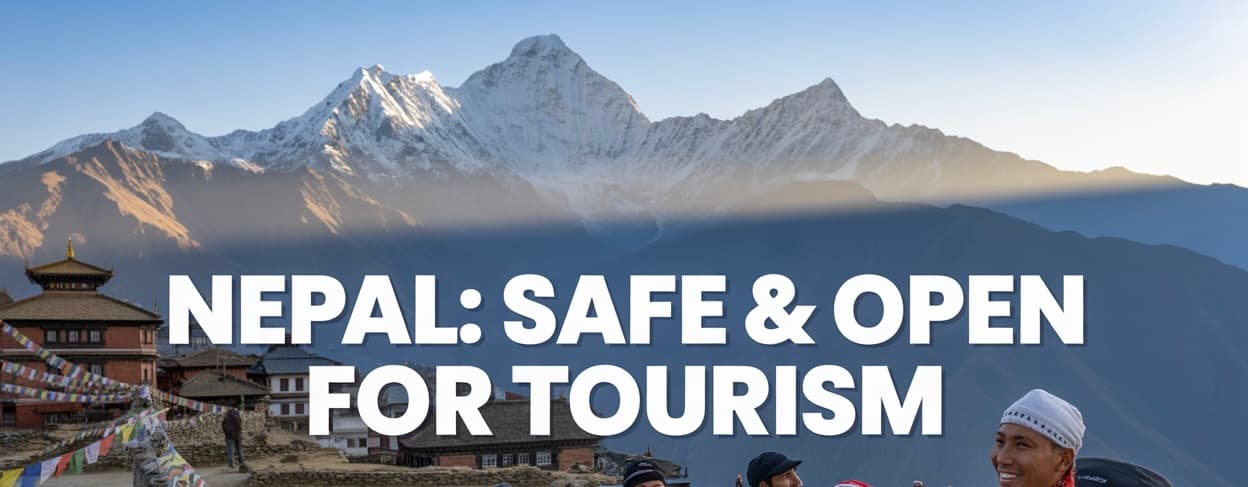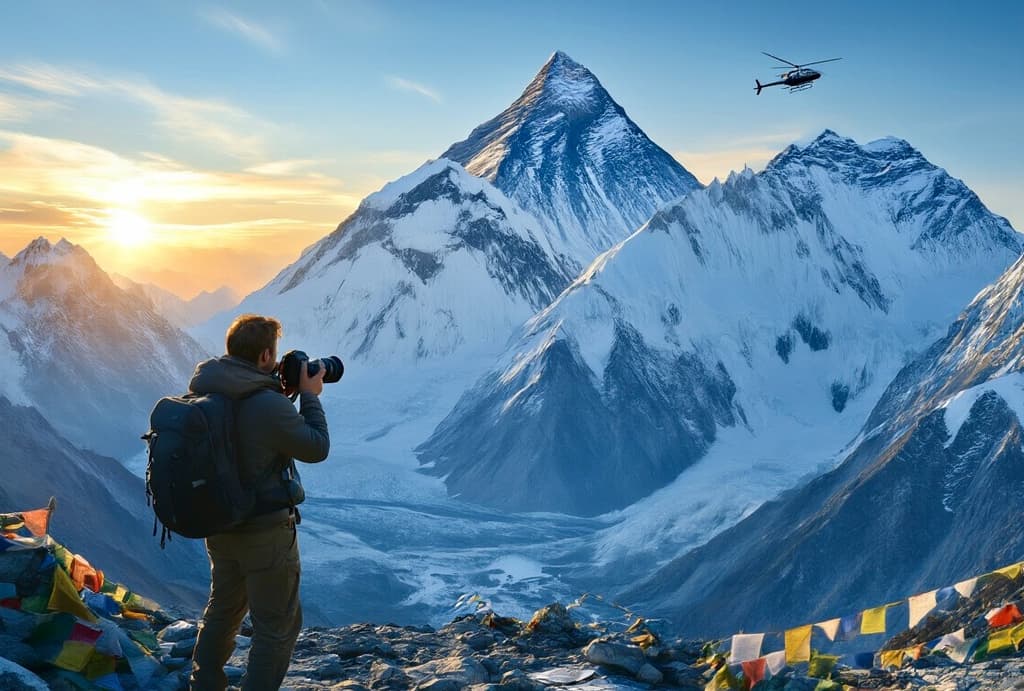Nepal remains a safe and welcoming destination for travelers, despite recent political protests that briefly disrupted normal life. This update is for adventure seekers, trekkers, cultural enthusiasts, and anyone considering a trip to the Himalayas who may have concerns about current safety conditions.
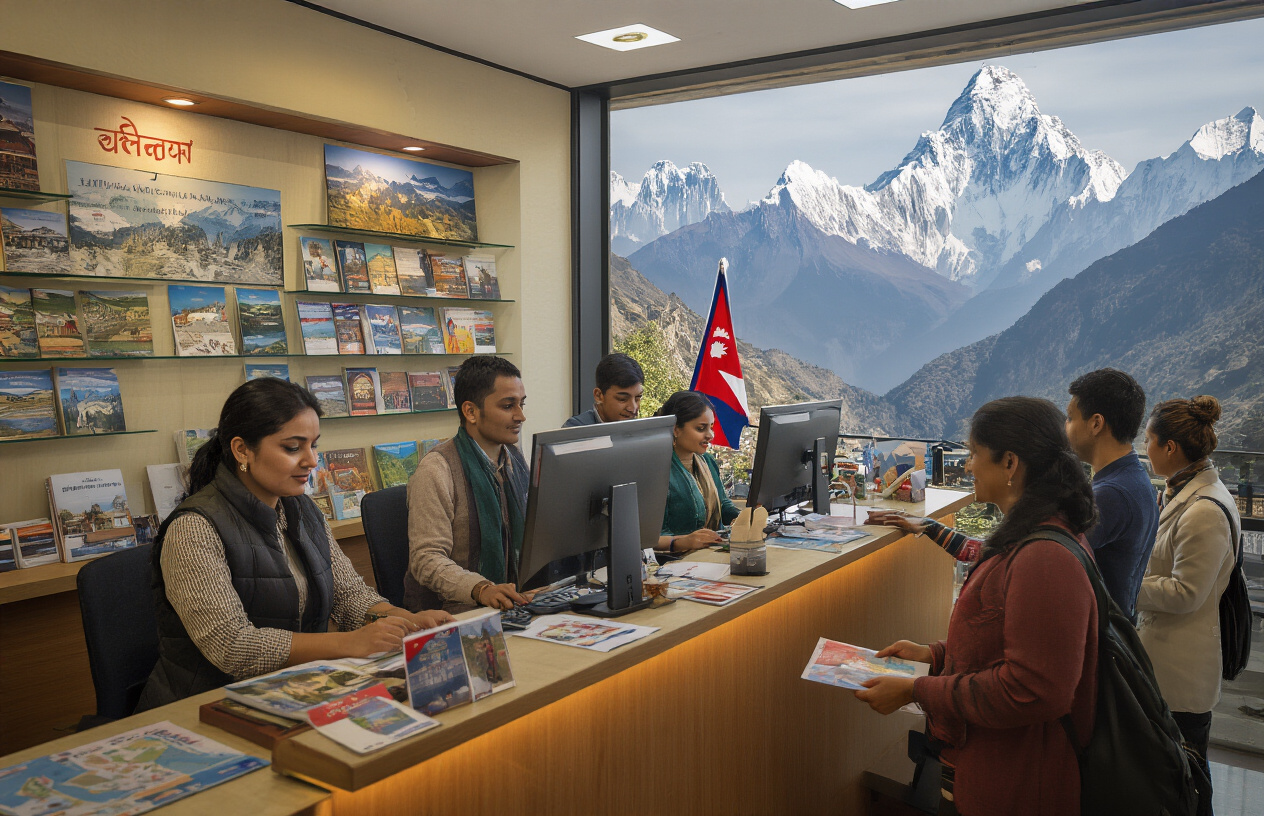
Recent events have sparked questions about travel safety, but on-ground evidence tells a different story. Local citizens, tourism operators, and international visitors confirm that Nepal's tourism infrastructure is continuing to operate normally, with no incidents affecting tourists during the demonstrations.
We'll examine the government's official safety assurances and current security measures, share real experiences from recent visitors who traveled during the protests, and outline practical safety tips for your upcoming Nepal adventure. You'll also learn about the tourism industry's recovery efforts and why your visit directly supports local communities rebuilding their economy.
The message is clear: Nepal's doors remain open, its people as hospitable as ever, and the mountains are calling.
Current Safety Status and Government Assurances
Official Government Declarations of Complete Safety for Tourists
The Nepalese government has taken decisive action to reassure the international community about the country's safety status for visitors. In official declarations, Nepal has actively urged tourists to return to the country, providing strong assurances about visitor safety and emphasizing that the nation is 'slowly recovering' from recent challenges. These governmental statements represent a clear commitment to maintaining Nepal's reputation as a safe destination for international travelers.
Most significantly, the government has made an unequivocal declaration that Nepal remains 'completely safe for travellers.' This official stance demonstrates the authorities' confidence in their ability to protect tourists and maintain security standards throughout the country. Such definitive language from government officials serves as a crucial reassurance for potential visitors who may have concerns about traveling to Nepal during uncertain times.
Nepal Tourism Board's Free Visa Renewal Initiative During Protests
Understanding the practical challenges faced by tourists during periods of political activity, the Nepal Tourism Board implemented a thoughtful and tourist-friendly policy to support visitors affected by the demonstrations. The board announced a special free visa renewal initiative specifically designed to assist tourists whose travel documents were impacted by the protest period.
Under this initiative, the Nepal Tourism Board offered complimentary visa renewals for all tourists whose documents expired on or after September 8th during the protest period. This proactive measure demonstrates the government's commitment to minimizing inconvenience for international visitors and ensuring that political demonstrations do not negatively impact tourist experiences. The policy reflects a deep understanding of tourism operations and shows the government's prioritization of visitor welfare even during challenging domestic situations.
Distinction Between Political Demonstrations and Tourist-Targeted Violence
A critical aspect of understanding Nepal's safety status lies in recognizing the fundamental nature of the political demonstrations and their relationship to tourism. Citizens and local observers have been clear in emphasizing that the agitation was 'purely against the government, without any intention of hurting tourists.' This distinction is essential for understanding the risk assessment for international visitors.
The political nature of the demonstrations means they are directed specifically at governmental policies and decisions, rather than representing any form of anti-tourist sentiment or xenophobic activity. Local citizens have consistently demonstrated that their grievances are with domestic political issues and have no bearing on their attitude toward international visitors. This clear separation between political dissent and tourist safety creates an environment where visitors can continue to travel with confidence, knowing that they are not targets of the demonstrations and that local populations remain welcoming to international guests.
Tourist Experiences and Testimonials
Foreign visitors continue planned activities despite concerns
Despite initial concerns raised by international media coverage, many foreign tourists have demonstrated remarkable confidence in Nepal's safety by proceeding with their planned travel activities. Luke Ziccardi, a 29-year-old traveler from England, exemplifies this resilient tourist mindset. Initially experiencing some nervousness after reading news reports about Nepal, Ziccardi made the prudent decision to verify conditions with local contacts before making any hasty changes to his itinerary. His due diligence paid off when travel agents confirmed normal operations and his teammates in Kathmandu provided direct assurance of safety conditions on the ground.
The determination to continue with planned activities extends beyond individual travelers to group tourism as well. A delegation of Indian tourists visiting the sacred Pashupatinath temple reported encountering no problems during their visit, finding Nepal to be both beautiful and welcoming. Dr. Gita Singh, representing this tourist group, emphasized that their experience at popular tourist destinations was entirely positive, with no interference or safety concerns affecting their planned activities.
Positive feedback from international travelers already in Nepal
Now that we have covered the decision-making process of travelers, the actual experiences of those already in Nepal paint an even more reassuring picture. Luke Ziccardi's on-ground verification process yielded overwhelmingly positive results, leading him to maintain his original travel plans with complete confidence. His direct communication with local contacts provided the real-time, accurate assessment that media reports often fail to capture.
Dr. Gita Singh and her group's testimonial carries particular weight, as their positive experience represents not just individual satisfaction but collective group consensus. Their willingness to return to Nepal speaks volumes about the quality of their experience and the genuine safety they felt throughout their visit. The group's emphasis on the "people-to-people connection" they experienced highlights Nepal's enduring appeal beyond its natural attractions.
Local hospitality and protection of guests during uncertain times
With this in mind, the most compelling aspect of Nepal's tourism resilience lies in its people's unwavering commitment to guest protection and hospitality. Local citizens have taken to social media platforms like Instagram to reassure potential visitors, with one particularly moving message capturing the essence of Nepali hospitality: "We might be poor with money but rich in love for our guests. No tourist will be bothered in our beautiful country, ever."
This sentiment reflects a deep-rooted cultural tradition that prioritizes guest welfare above all else. The local community's proactive approach to reassuring international visitors demonstrates not just hospitality but a genuine understanding of their responsibility as hosts. This grassroots commitment to tourist safety and comfort provides an additional layer of security that goes beyond official government assurances, creating an environment where visitors can truly feel protected and welcomed.
Social Media Campaign for Tourism Recovery
Citizens' Grassroots Efforts to Reassure Potential Visitors
Nepali citizens took to social media platforms with remarkable unity and determination to restore confidence in their tourism industry. Through spontaneous grassroots campaigns, locals actively reached out to international audiences, emphasizing that Nepal remains "completely safe for travellers" and is "slowly gathering itself" after recent protests. This organic movement demonstrated the deep connection between Nepali people and their tourism heritage.
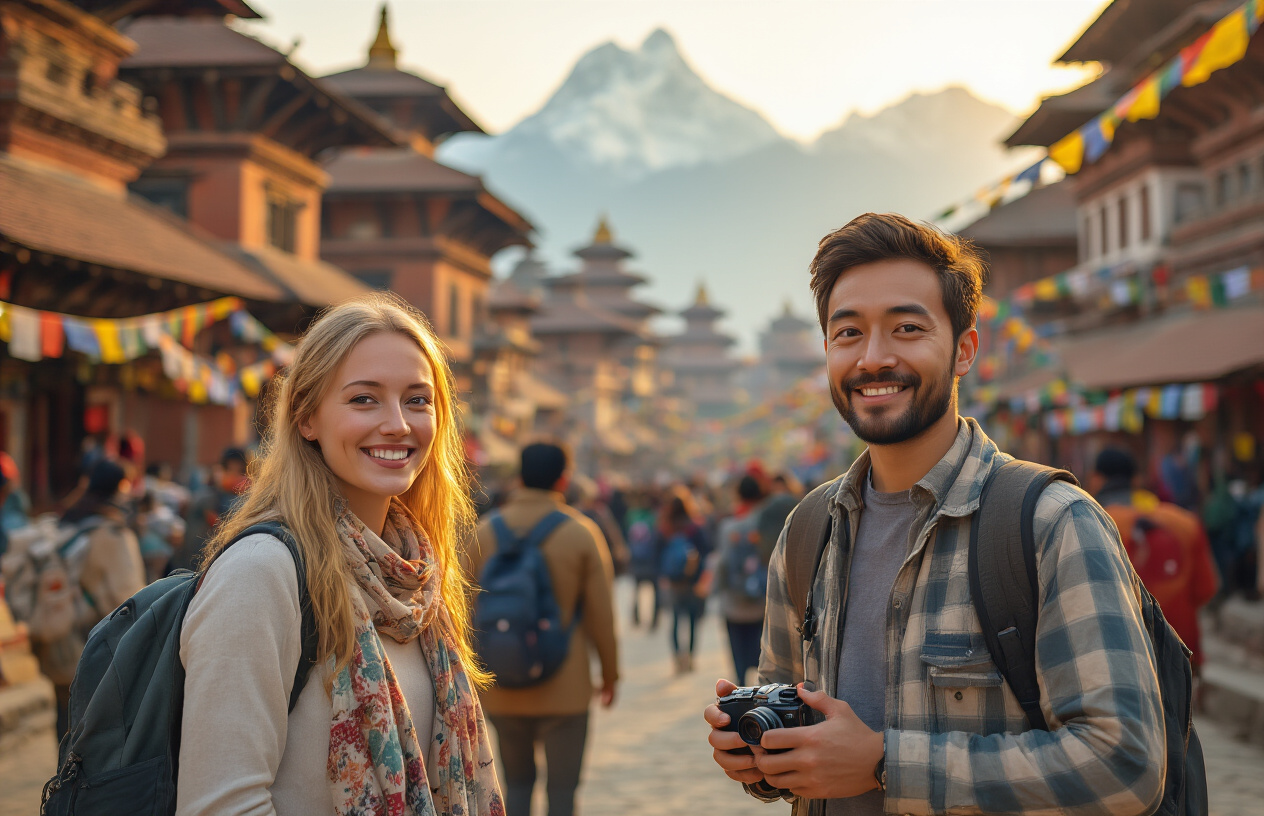
The youth of Nepal played a particularly crucial role in these reassurance efforts, leveraging their social media presence to provide clarity and context. They specifically addressed concerns by explaining that any recent agitation was "purely against the government, without any intention of hurting tourists." This targeted messaging helped distinguish between internal political matters and the country's unwavering commitment to tourist safety and hospitality.
Viral Content Showcasing Normal Tourist Activities
The power of visual storytelling became evident through compelling viral content that showcased Nepal's return to normalcy. A particularly influential X (formerly Twitter) account, "Routine of Nepal Banda" with over one million followers, became instrumental in this recovery narrative. The account strategically shared a powerful photograph featuring foreign tourists joyfully dancing to traditional Nepalese music, creating an authentic representation of the positive tourist experience.
This viral content was accompanied by a heartfelt message that read: "Appeal to tourists...Nepal is back to normal. Please visit our beautiful country. Perfect reason to do so...We request people abroad to promote our tourism at this time." The combination of authentic imagery and sincere messaging resonated widely across social media platforms, effectively countering negative perceptions and demonstrating that tourism activities continued uninterrupted.
Community-Driven Messaging About Tourist Safety Priorities
The community's messaging consistently emphasized Nepal's foundational values of hospitality and guest protection. Through platforms like Instagram, citizens articulated their deep-rooted commitment to tourist welfare with messages that reflected both cultural pride and practical assurances. One particularly moving citizen post captured the essence of Nepali hospitality: "Nepal has always welcomed tourists with open arms. We might be poor with money but rich in love for our guests."
This community-driven narrative went further to provide absolute assurances about tourist safety, with citizens collectively stating: "No tourist will be bothered in our beautiful country, ever." These messages weren't merely promotional statements but represented genuine cultural commitments that have been integral to Nepal's tourism identity for generations. The grassroots nature of these communications lent authenticity and credibility that traditional marketing campaigns often struggle to achieve.
Tourism Industry Support and Operations
Travel agents are maintaining normal business operations
Despite prevailing concerns about Nepal's tourism sector, travel agents across the country are demonstrating remarkable resilience by maintaining their normal business operations. This continuity in service delivery represents a crucial foundation for Nepal's tourism industry, ensuring that visitors can access professional guidance and support throughout their travel planning process.

The operational stability of travel agencies serves as a strong indicator that the tourism infrastructure remains robust and capable of handling international visitors. These agencies continue to process bookings, coordinate itineraries, and provide essential travel services without significant interruption. Their ongoing operations reflect confidence in Nepal's ability to accommodate tourists while maintaining high service standards and safety.
Travel agents are not merely surviving the current challenges but are actively working to facilitate seamless travel experiences for their clients. This business-as-usual approach provides reassurance to potential visitors that professional tourism services remain available and reliable, contributing significantly to Nepal's reputation as a stable tourist destination.
Popular tourist destinations remain accessible
Nepal's most treasured tourist destinations continue to welcome visitors, with accessibility remaining uncompromised despite current challenges. Tourists are continuing their visits to Pashupatinath Temple, one of Nepal's most sacred and historically significant sites, demonstrating that cultural tourism remains vibrant and accessible.
The continued operation of other popular tourist places throughout Nepal indicates that the country's tourism infrastructure is functioning effectively. Visitors can still experience Nepal's rich cultural heritage, religious sites, and natural attractions without significant barriers or safety concerns.
Perhaps most notably, planned trips to Everest Base Camp are proceeding as scheduled, representing one of the most significant indicators of Nepal's tourism sector stability. The fact that adventure tourism, particularly high-altitude trekking to one of the world's most challenging destinations, continues uninterrupted speaks volumes about the operational capacity and safety standards maintained throughout Nepal's tourism industry.
This accessibility to both cultural and adventure tourism destinations ensures that Nepal can continue to offer diverse experiences to different types of travelers, maintaining its position as a comprehensive tourist destination.
Infrastructure and services are continuing without disruption
The tourism infrastructure across Nepal maintains its operational integrity, ensuring that visitors can rely on established systems and services during their stay.
While specific details about infrastructure performance require further documentation, the continued normal operations of travel agencies and accessibility of major tourist destinations strongly suggest that essential tourism infrastructure remains functional and reliable.
This operational continuity encompasses various aspects of tourism infrastructure, from transportation networks connecting major destinations to accommodation facilities and support services that facilitate tourist experiences. The maintenance of these systems without significant disruption provides a foundation for safe and enjoyable travel experiences throughout Nepal.
The stability of tourism infrastructure serves as a critical component in Nepal's overall tourism recovery strategy, ensuring that when international travel patterns normalize, the country will be fully prepared to accommodate increased visitor numbers without compromising service quality or safety standards.
Economic Importance and Recovery Efforts
Tourism is a crucial pillar of Nepal's economy
Tourism stands as one of Nepal's most vital economic foundations, serving as a cornerstone that supports countless livelihoods and contributes significantly to the nation's GDP. The industry's importance cannot be overstated, as it generates substantial foreign exchange earnings and provides employment opportunities across various sectors, from hospitality and transportation to local handicrafts and cultural preservation initiatives.
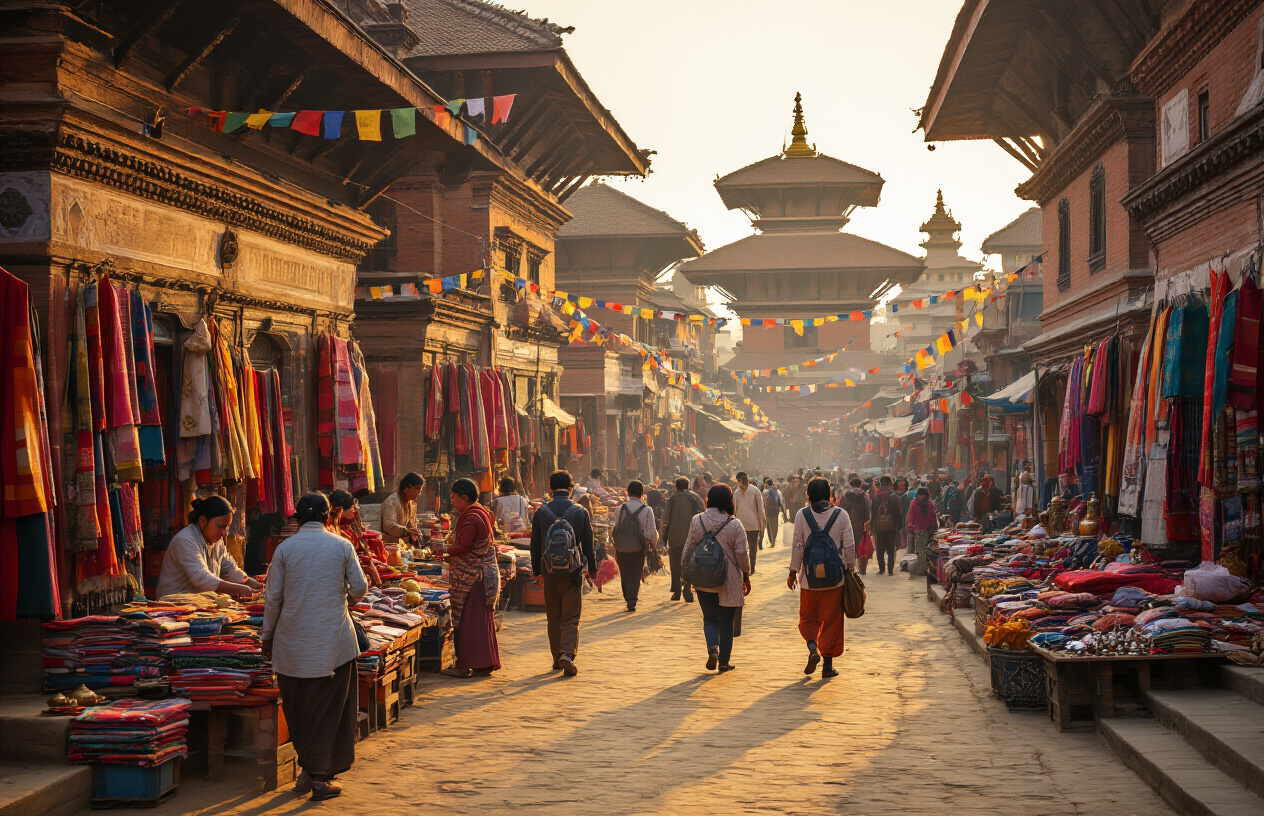
The interconnected nature of Nepal's tourism ecosystem means that any disruption to visitor arrivals creates ripple effects throughout the economy. Hotels, restaurants, trekking agencies, mountain guides, and countless small businesses depend on the steady flow of international tourists who come to experience Nepal's unique blend of natural beauty and rich cultural heritage. This economic vulnerability makes the tourism sector particularly sensitive to political developments and social unrest, as concerns about potential setbacks from protests directly impact the financial wellbeing of thousands of families who rely on tourism-related income.
Industry stakeholders are working to minimize visitor concerns
In response to challenges affecting tourist confidence, the Nepal Tourism Board has taken proactive measures to support visitors and maintain the country's reputation as a welcoming destination. One of the most significant initiatives involved offering free visa renewals for tourists who found themselves affected by the protests, demonstrating the government's commitment to visitor welfare and its recognition of tourism's economic importance.
Beyond official government actions, ordinary Nepali citizens have stepped forward to champion their country's tourism industry through grassroots efforts. These individuals actively launched campaigns on social media platforms, working tirelessly to encourage tourism and provide reassurance to potential visitors about safety conditions. This organic, citizen-driven approach reflects the deep understanding among locals of how crucial tourism is to their communities and their willingness to take personal responsibility for maintaining Nepal's positive image in the global travel market.
Long-term commitment to maintaining tourist confidence
While specific data regarding long-term strategic initiatives remains limited in the available information, the proactive responses from both government entities and private citizens demonstrate a clear recognition that maintaining tourist confidence requires sustained effort and commitment. The collaborative approach between official tourism boards and grassroots community movements suggests a comprehensive understanding of the challenges facing the industry and the need for multi-layered solutions to address visitor concerns effectively.
Practical Safety Measures for Travelers
Current security protocols in major tourist areas
While specific security protocols are continuously evolving based on current conditions, travelers should be aware that major tourist destinations in Nepal maintain standard safety measures. Tourist areas typically implement basic security arrangements, though detailed information about specific protocols may vary by location and current circumstances. Visitors are advised to stay informed about any security updates through official channels and local tourism authorities.
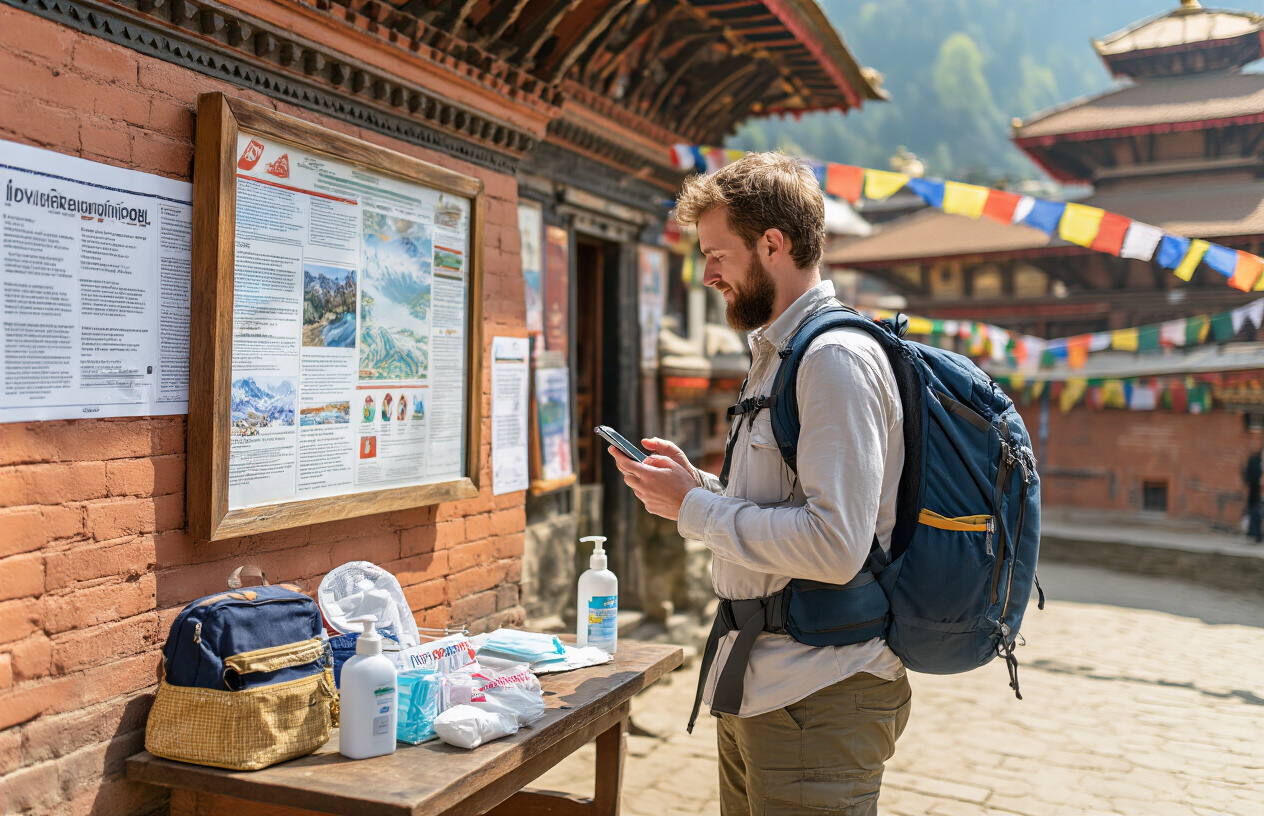
The implementation of security measures in popular destinations like Kathmandu, Pokhara, and major trekking routes follows general safety standards, though comprehensive details about current specific protocols are not readily available through standard information channels. Travelers should plan to verify current security arrangements directly with local authorities or tourism offices upon arrival.
Coordination between authorities and tourism operators
The collaboration between government authorities and tourism operators remains a critical component of maintaining tourist safety, though specific coordination mechanisms are required. Tourism operators typically work within established frameworks to ensure visitor safety.
Emergency support systems available for international visitors
Emergency support systems for international visitors in Nepal operate through standard diplomatic and local emergency channels, though comprehensive details about current specific support mechanisms are not immediately available through general information sources. International travelers should ensure they have access to their embassy or consulate contact information and understand general emergency procedures.
Despite the recent challenges that have captured international attention, Nepal remains a safe and welcoming destination for travelers. Government officials have provided strong assurances about tourist safety, while numerous visitors currently in the country report positive experiences and encounters with the warm hospitality Nepal is known for. The tourism industry continues to operate normally, with travel agents, accommodations, and tour operators maintaining their services. The Nepal Tourism Board has even taken proactive steps to support affected travelers by offering free visa renewals for those whose documents expired during the disruption period.
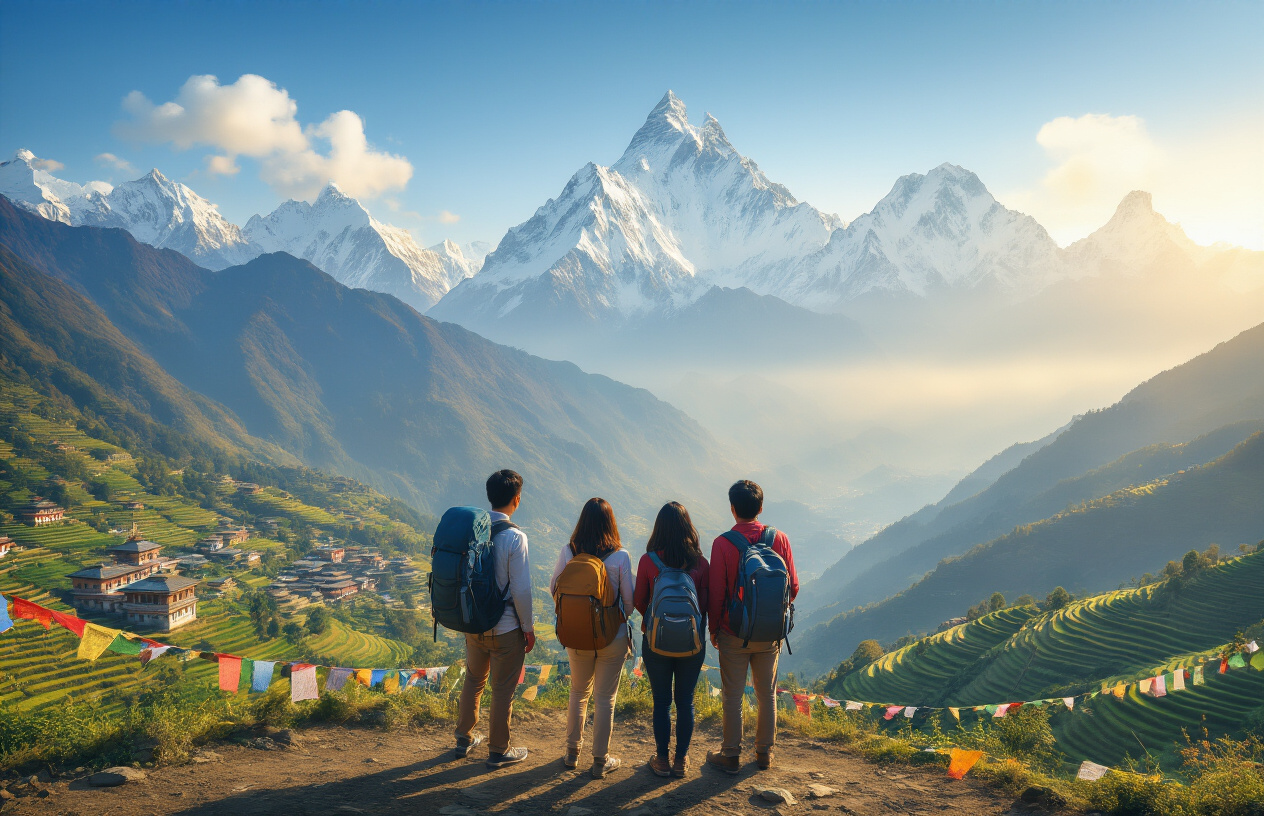
The overwhelming message from both officials and tourists on the ground is clear: Nepal is open for business and eager to welcome visitors back. The country's breathtaking landscapes, rich cultural heritage, and adventure opportunities remain unchanged, and the tourism infrastructure stands ready to provide unforgettable experiences. Social media campaigns led by locals demonstrate the genuine care and concern for Nepal's reputation as a premier travel destination.
For those planning their next adventure, Nepal continues to offer the same incredible experiences that have drawn travelers for decades - from trekking to Everest Base Camp to exploring ancient temples in Kathmandu. The nation may be slowly recovering, but its doors remain wide open to those seeking authentic Himalayan adventures.
If you need any further information, please contact us by email: [email protected], Phone: +977- 985 100 5129 (WhatsApp)

